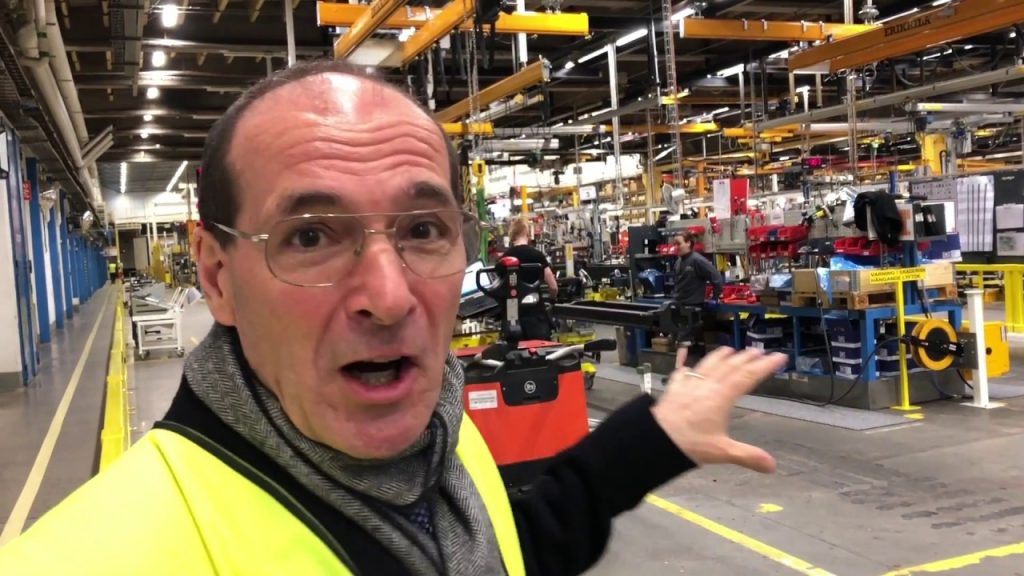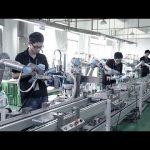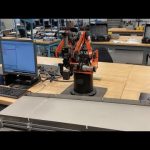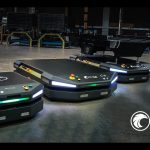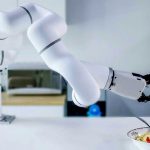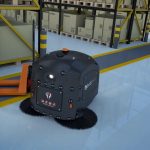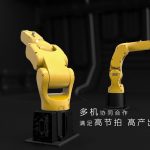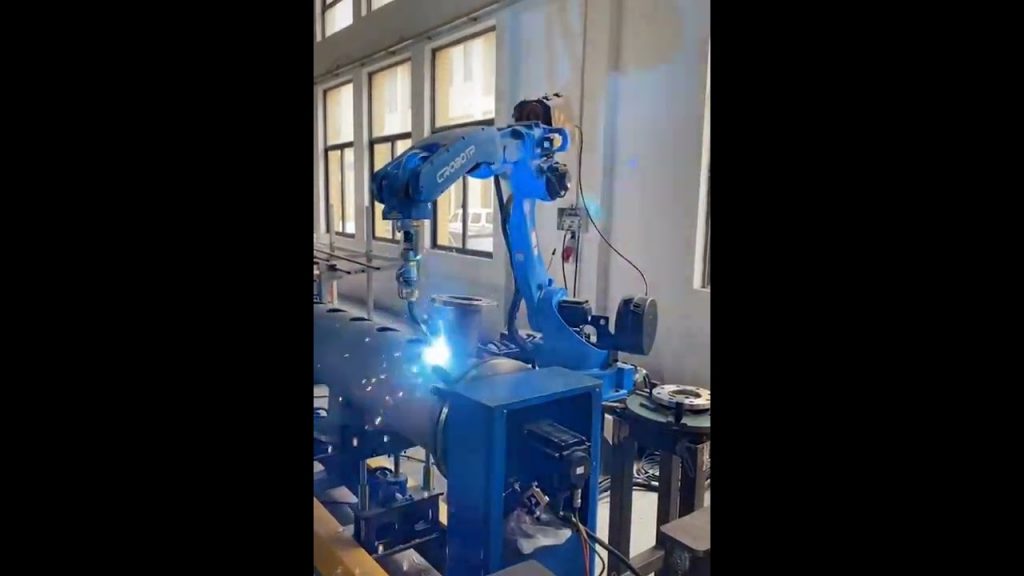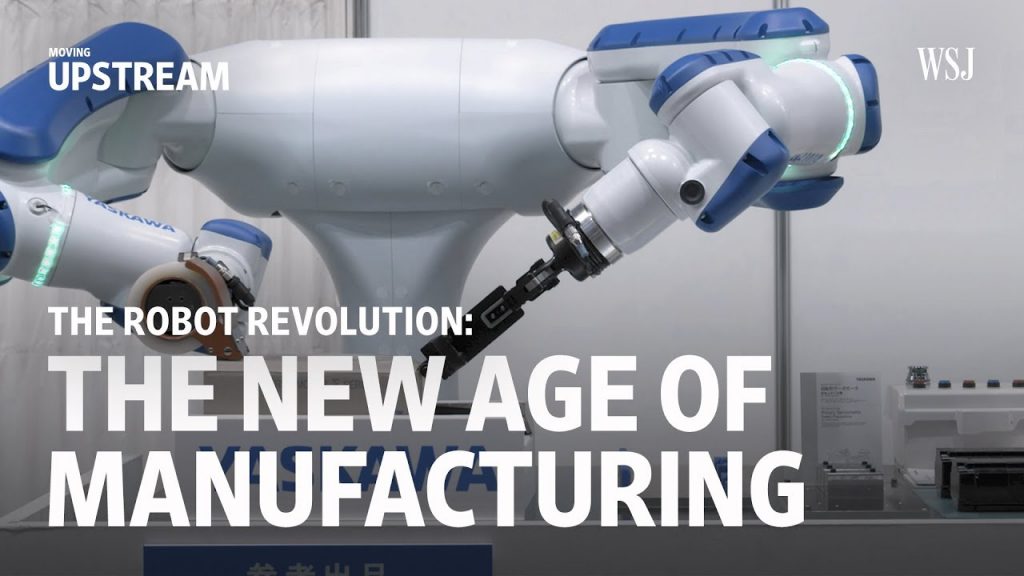Check out our website for more information on the leading manufacturer’s coil packing solution.”
Manufacturing Innovation Trends: How the Future of Manufacturing is Changing
In today’s rapidly evolving technological landscape, the manufacturing industry is at the forefront of innovation. With the rise of Industry 4.0, also known as the Fourth Industrial Revolution, manufacturing processes are being revolutionized by advancements in robotics, AI, big data, and more. As a sales engineer in the manufacturing sector, I have witnessed firsthand the transformative effects of these innovations on industrial robot applications. In this article, we will explore the key trends shaping the future of manufacturing and discuss the lessons we can learn from Toyota’s innovative approach.
Industrial Robot Applications: Driving Manufacturing Innovation
Industrial robots have become an integral part of modern manufacturing processes. These automated machines are capable of performing repetitive tasks with precision, speed, and efficiency. From assembly lines to packaging, industrial robots are revolutionizing the manufacturing industry. With the advancements in robotics technology, these machines are becoming increasingly intelligent, adaptable, and versatile.
One of the key applications of industrial robots is in the field of automation. By automating various processes, manufacturers can streamline their production lines, reduce costs, and improve overall efficiency. Industrial robots can perform tasks that were previously done by humans, freeing up the workforce to focus on more complex and creative tasks. This not only enhances productivity but also improves the quality of products.
Another significant trend in manufacturing innovation is the integration of AI and big data analytics. By harnessing the power of artificial intelligence and analyzing vast amounts of data, manufacturers can gain valuable insights into their operations. This enables them to optimize their processes, identify bottlenecks, and make data-driven decisions. AI-powered systems can also predict maintenance requirements, reducing downtime and increasing overall equipment effectiveness.
Toyota: Leading the Way in Manufacturing Innovation
When it comes to manufacturing innovation, Toyota is a true pioneer. The company has embraced the principles of lean manufacturing, focusing on eliminating waste and continuously improving processes. Toyota’s approach to manufacturing, often referred to as the Toyota Production System, has become a model for other companies worldwide.
Toyota has also been at the forefront of incorporating robotics and automation into its manufacturing processes. The company has deployed a wide range of industrial robots across its production lines, enhancing efficiency and ensuring consistent quality. By embracing robotics, Toyota has been able to achieve higher levels of productivity while reducing costs.
Furthermore, Toyota has leveraged the power of AI and big data analytics to optimize its operations. The company collects data from its production lines, analyzes it in real-time, and uses the insights gained to drive continuous improvement. This data-driven approach has enabled Toyota to identify areas for improvement, implement changes, and stay ahead of the competition.
Lessons from Toyota: Embracing Manufacturing 4.0
There are several key lessons that manufacturers can learn from Toyota’s innovative approach. First and foremost, embracing automation and robotics can significantly enhance productivity and efficiency. By automating repetitive tasks, manufacturers can free up their workforce to focus on higher-value activities.
Secondly, leveraging AI and big data analytics can provide valuable insights into operations. By analyzing data, manufacturers can identify patterns, optimize processes, and make informed decisions. This data-driven approach enables manufacturers to stay competitive in today’s fast-paced business environment.
Lastly, adopting a culture of continuous improvement is crucial for success in the manufacturing industry. Toyota’s commitment to eliminating waste and continuously improving processes has been instrumental in its success. By constantly seeking ways to improve, manufacturers can stay ahead of the curve and drive innovation.
In conclusion, the future of manufacturing is being shaped by innovative technologies such as robotics, AI, and big data analytics. Industrial robot applications are at the forefront of this revolution, driving efficiency, productivity, and quality in manufacturing processes. Toyota’s approach to manufacturing innovation serves as a valuable lesson for manufacturers looking to embrace the Fourth Industrial Revolution. By leveraging automation, AI, and data analytics, manufacturers can position themselves for success in the evolving manufacturing landscape.
Check out our website for more information on leading manufacturers’ coil packing solutions. Industrial Robot
“The Future of Manufacturing: Innovations in Robotics, AI, and Big Data Unveiled by Leading Futurist Keynote Speaker and Industrial Robot Applications”

